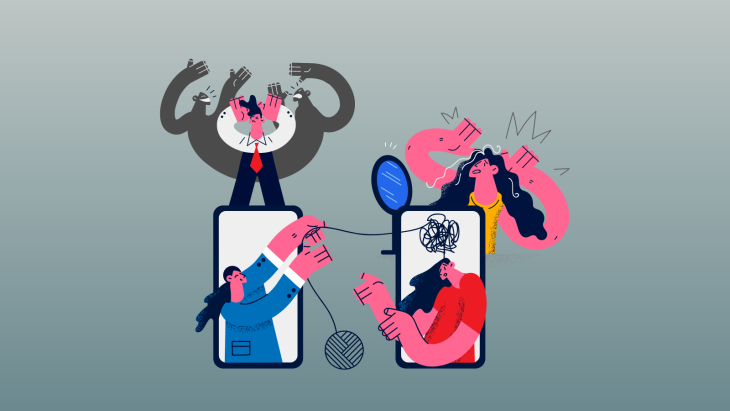Recent Posts
- Men masking mental health issues. Why is men's mental health declining in the US?
- I am hesitating on joining the armed forces! Are people in the armed forces more prone to mental health problems?
- Getting acquainted with the 7 types of anxiety disorders. What do I need to know about them?
- My husband needs to recover from alcohol dependence and mental health issues. How can I help him?
- Are there good and bad debts? And how does debt impact mental health?
Most Popular
The Anxious Generation. What is causing Gen Z's mental health crisis?

Compared to previous generations, young people falling into the category that is Generation Z (GenZ) are experiencing higher rates of anxiety and anxiety disorders.
While it is true that there are so many things that may cause anxiety in this day and age, what makes GenZs more prone to having anxiety to the point of being called “The Anxious Generation?”
The Anxious Generation
This crisis in mental health is not only in the US, but is apparent in other places around the world including Canada, the UK, and Australia. In fact, a review of mental health studies show that a part of young people in 33 European nations experience some form of mental distress.
Trends show that the rise of anxiety disorders among US teens seems to have started around the 2010s. And many of the cases revolve around anxiety and depression.
Possible links to the mental health crisis among GenZs
Study after study done and reviewed, people of science say that the mental health crisis is multi-faceted and caused by many possible factors.
One link to this crisis is the decrease in play-based activities among children. Research shows that at the advent of the 1970s, more and more parents have become less trusting and more fearful of society.
Due to worsening social conditions, more parents did not allow their children to go out of the house without supervision. This was in fear of their safety. Thus the decline for child-based play. And this got more serious over time.
As a result, children also lost their opportunities to spend time with other kids, and to spend time with their friend groups. In fact, statistics show that there is a steady decline in the amount of time children spend with friends by 2020 as compared with 2005, 2010 and 2015.
Reviews of research on 12th graders also revealed that more young people are being exposed to risky activities like alcohol-use, driving, sexual activities at a young age.
In addition, when young people’s social lives shifted to social media, there was a decrease in the amount of time spent by young people playing with friends face to face.
New York State University Professor Jonathan Haidt in his book The Anxious Generation says that the main culprits of anxiety among young people is the environment that exposes them to, and encourages the use of smartphones and social media.
Others believe that the rise in mental health issues among young people is from the fact that they are more willing to get help, diagnosed and get treatment.
In effect, the mental health crisis has been linked to unpleasant effects on children’s:
- Amount of physical activity/ exercise
- Amount of sleep
- Academic performance
- Social activities with friends spent face-to-face
The possible fix
The problem is not without a solution. Many believe that undoing the effects of the above-mentioned factors is possible.
- Expose children to more hands-on and real life experiences of going outdoors, and playing.
- Limit the access of children to the Internet, especially social media, at a young age. Parents should be careful in setting up systems and ways to secure their children’s safety when they are allowed to use the Internet.
- Experts say that delaying exposure to social media use until the age of 16 helps children to have more play-based experiences out of doors.
To make these things happen, we as a society need to act together. Let us provide a healthier environment that encourages growth and development through first-hand and nurturing childhood experiences. Let us bring up a stronger and more resilient generation.
Connect with hundreds of mental health and healthcare jobs across the US and jumpstart your career in the medical field.








Comments